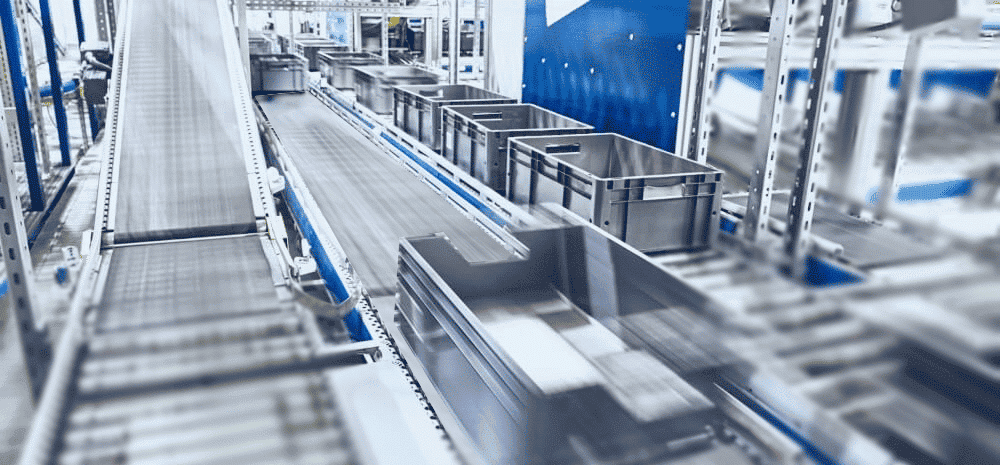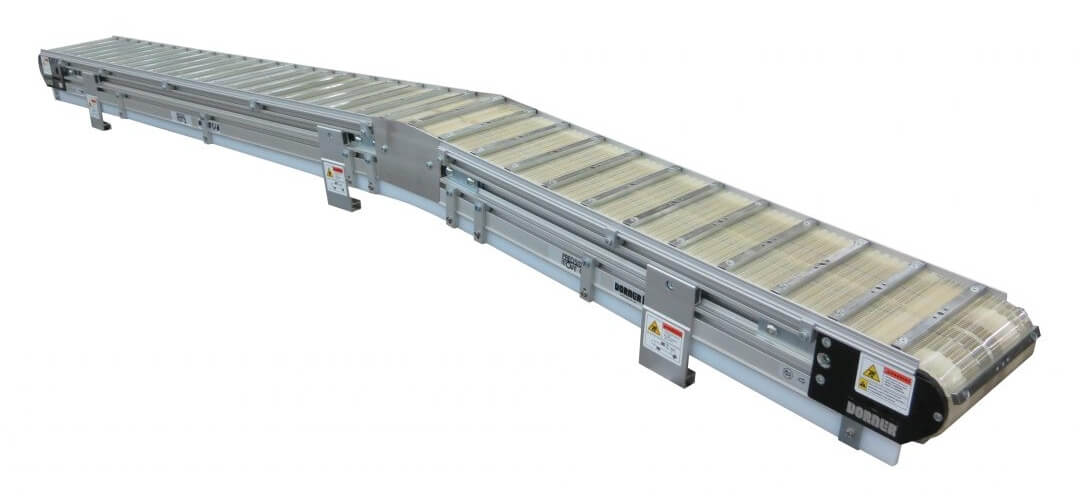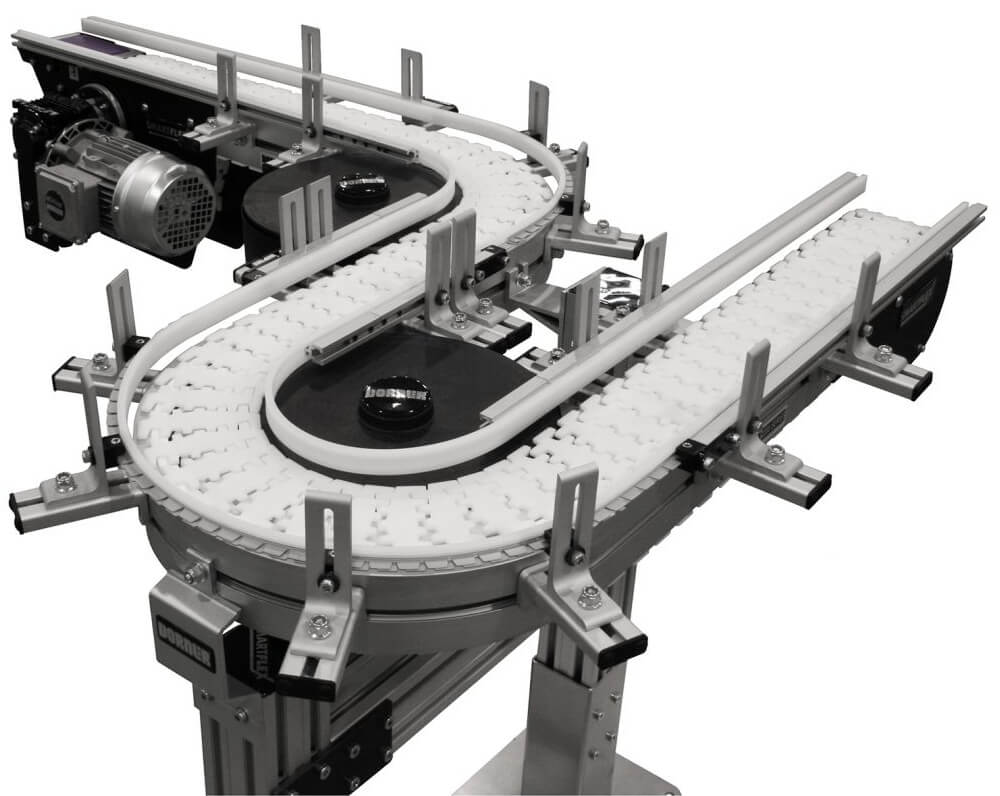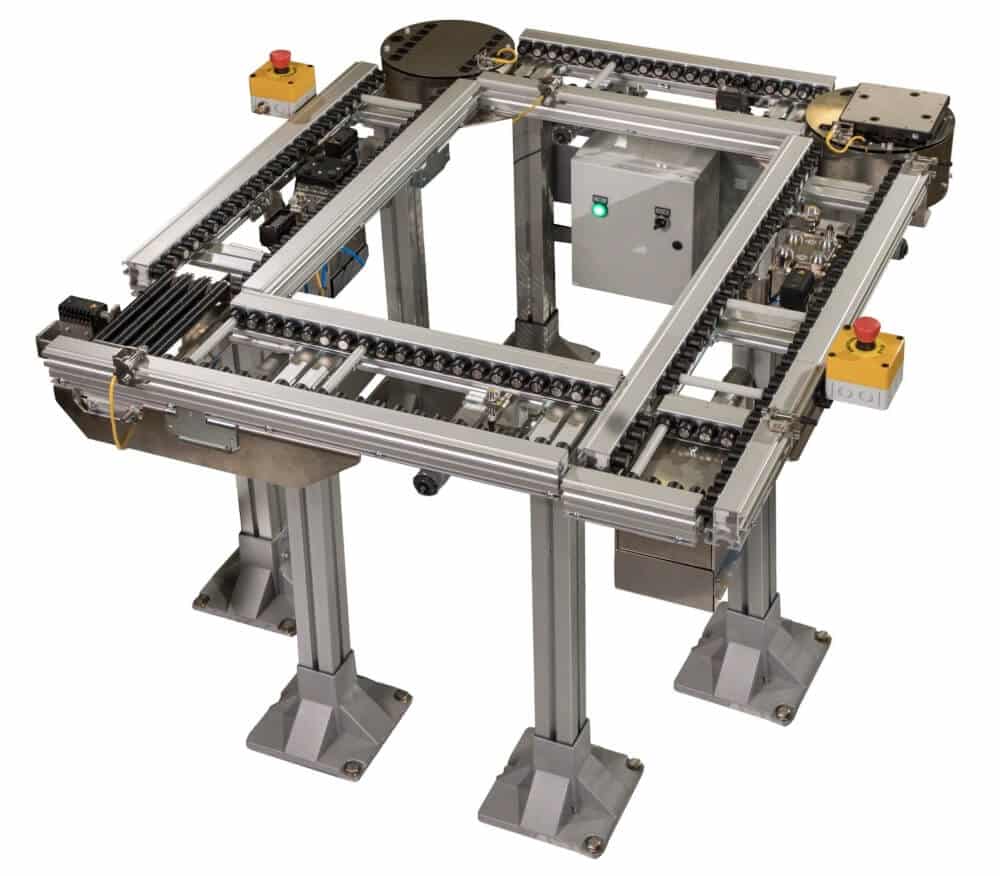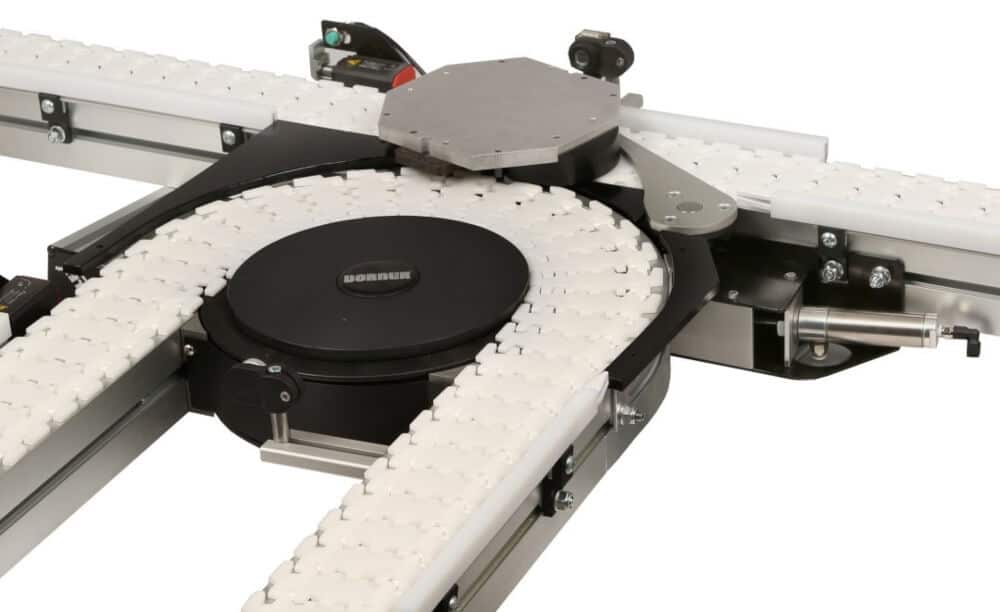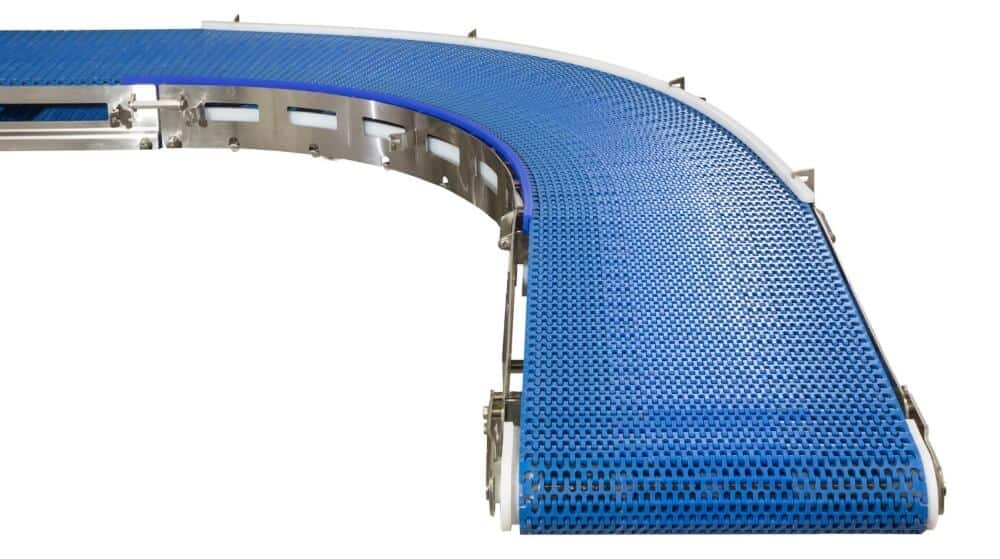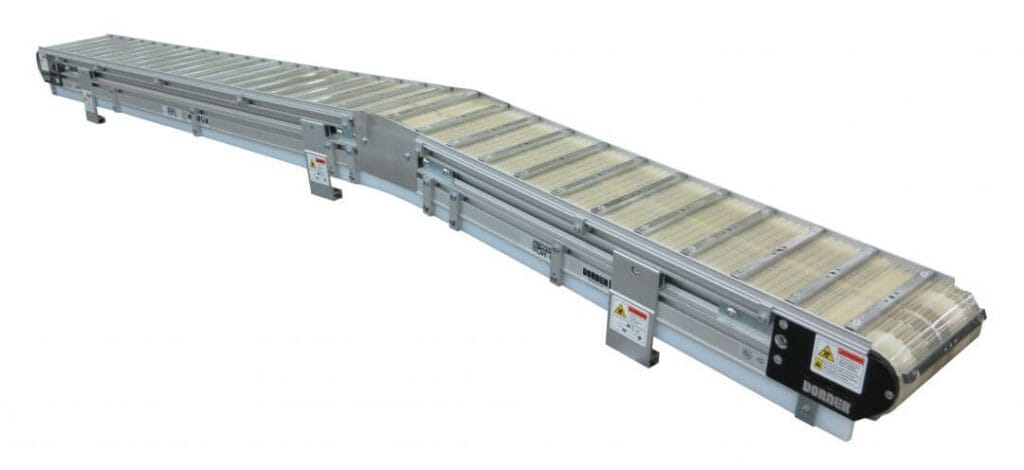Engineered Solutions
Lean Manufacturing and Warehousing
As the world of manufacturing and warehousing becomes increasingly taxed by demand and inflation, it is important to consider what companies can do to create more efficient production and logistics environments.
Lean manufacturing is all about creating value for the customer while minimizing waste, and this same philosophy can be applied to warehousing and distribution. By using lean techniques in both manufacturing and warehousing, companies can achieve a higher level of productivity and efficiency while minimizing overhead costs.
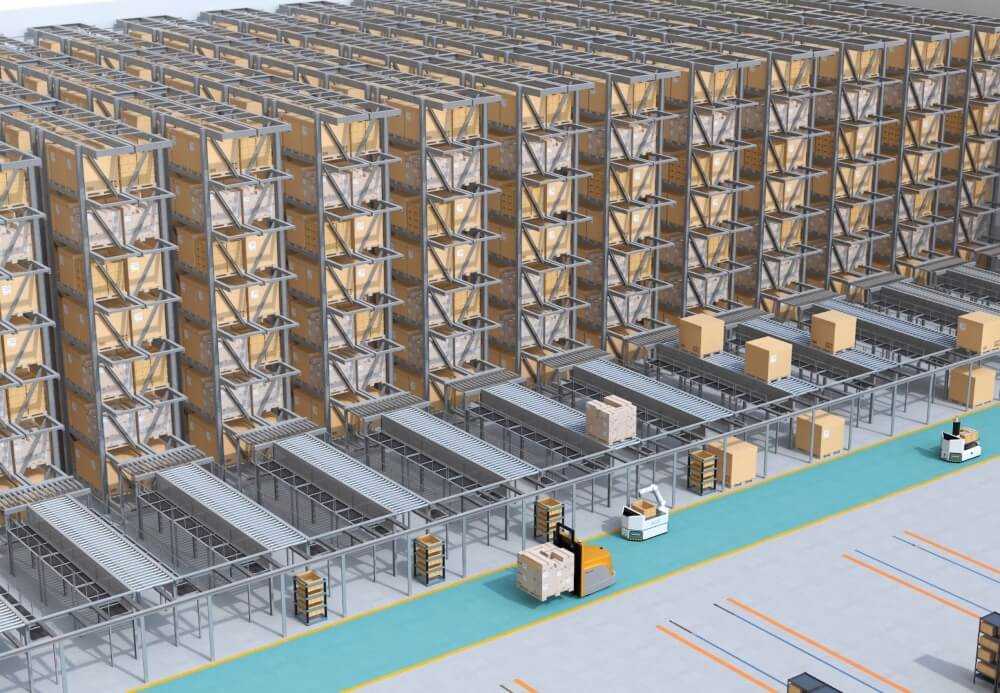
What Is Lean Manufacturing?
Lean manufacturing is a philosophy of manufacturing that emphasizes the minimization of waste in all forms. The goal of lean manufacturing is to produce high-quality goods and services while minimizing waste, maximizing efficiency, streamlining production, and reducing costs.
In a lean manufacturing system, every step in the manufacturing process is carefully analyzed and optimized so that there is minimal wasted time, motion, and resources. Achieving these efficiencies requires close collaboration between all members of the production team, from engineers to assembly line workers. It also requires the use of lean manufacturing tools and principles.
One of the key benefits of lean manufacturing is that it can be applied to any type of manufacturing process, whether it’s for consumer goods, industrial equipment, or medical devices.
The lean methodology can also be used in other areas of businesses, such as package fulfillment, logistics, and office organization.
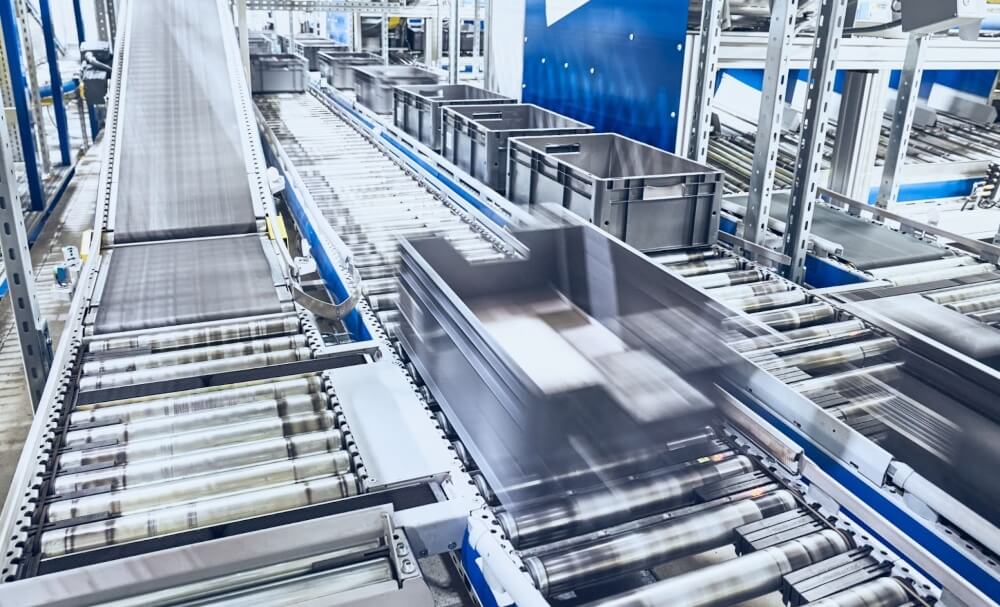
Key Lean Principles and Objectives of Lean Manufacturing
In lean manufacturing, muda refers to any activity that doesn’t add value for the customer. The primary objectives of lean methodology are to eliminate waste, maintain productivity levels, and reduce overburden and inconsistencies so that every step in the manufacturing process adds value for the customer.
Minimize Waste
Wasted Time
Any time used during the manufacturing process that is not used effectively to create value for the customer is wasted. This can include activities such as waiting for materials, changeover, searching for needed information, and machine downtime.
Wasted Motion
Motion and time go hand in hand because any wasted energy we spend with unnecessary motion is also wasted time. Wasted motion can include a wide range of activities, such as manually transporting material or tools from one workstation to another, sorting through unorganized parts, and locating tools.
Wasted Resources
This is any resource that is not being used effectively and efficiently during any step in production or warehousing. Wasting resources can include everything from using too much material and producing extra waste to using inefficient methods of manufacturing processes.
Wasted Effort
This is any effort that doesn’t add immediate or future value for the customer. This can include activities such as working on tasks that are not essential, reworking defective items, and doing unnecessary tasks.
Maintain Productivity
Maintaining productivity levels can be achieved by establishing a manufacturing process that can quickly and easily meet customer demand.
To do this, lean manufacturing relies on just-in-time production. Just-in-time production is a system where parts are delivered just as they are needed in the production process. This eliminates the need to store large inventories of parts, which can save space and reduce the risk of defects.
Another way to maintain high levels of productivity is by reducing setup time when changing over from one product to another. In lean manufacturing, this time is reduced by implementing standardization and simplification of parts, tools, and production processes.
By creating a consistent way of doing things, eliminating unnecessary steps, using fewer resources, and cutting back on non-essential practices, you can increase productivity across your entire company.
Reduce Muri and Mura
In lean manufacturing, muri refers to any activity that puts unnecessary strain on the workers or equipment. This can include activities such as unreasonable overtime, unrealistic production quotas, and unsafe working conditions. Reducing overburden of staff and equipment improves the longevity of machinery, lowers downtimes for repairs, and improves overall employee morale.
Mura, on the other hand, refers to any activity that causes fluctuations or inconsistencies in the manufacturing process, which is one of the biggest contributors to waste and lower productivity. This can include activities such as fluctuating demand, batching orders, unexpected downtime, inconsistent quality, and process variability.
To reduce overburden and inconsistency, lean manufacturing relies on automation and standardization. Automation can improve workplace safety by managing difficult or repetitive tasks, such as transporting, inventory management, product assembly, and packaging.
Integrating automated Dorner conveyors can reduce the need for manual labor, free up employees for more value-adding duties, and improve the overall safety of the manufacturing or warehousing environment.
Learn more about how Dorner conveyors can facilitate lean management in your facility.
The 5S Principles of Lean Management
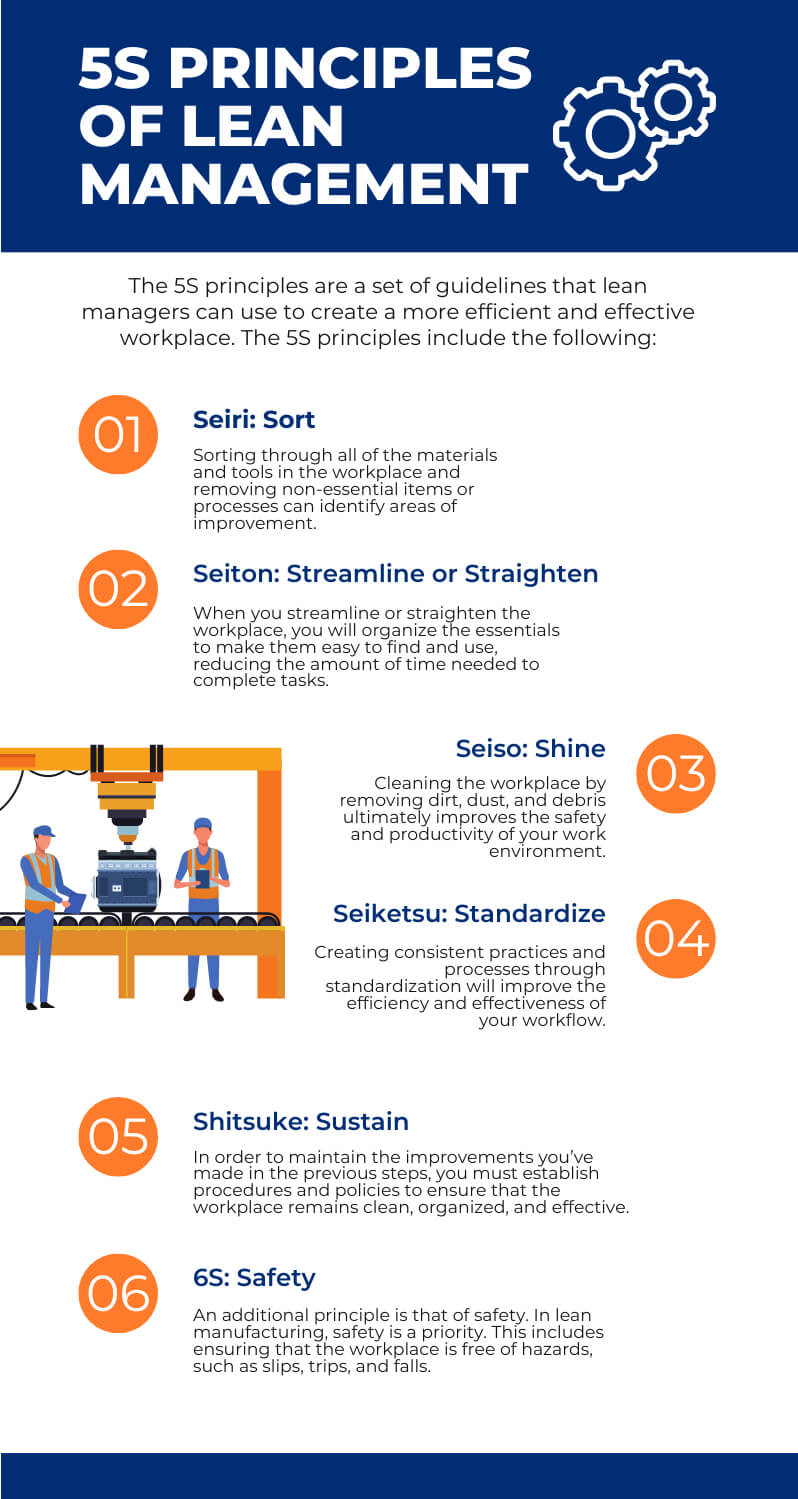
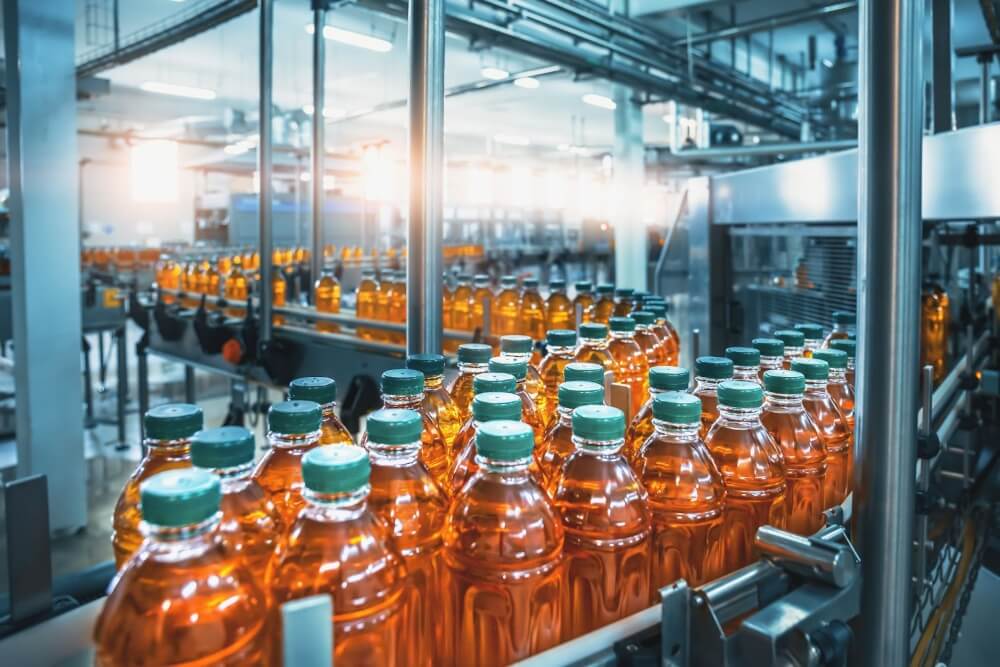
Benefits of Lean Manufacturing & Lean Warehouse Management
There are many benefits of lean manufacturing including reduced costs, increased efficiency, and improved quality.
Reduced Operation Costs
One of the main goals of lean manufacturing is to reduce waste and eliminate non-value-added activities. In doing so, companies can reduce their operation costs by cutting back on non-essential practices and resource consumption.
Improved Use of Time and Resources
In addition to reducing costs, lean manufacturing can also improve the use of time and resources. Companies can reduce the amount of time needed to produce a product, leading to improved productivity.
Optimized Use of Floor Space
Space is a premium in manufacturing and warehousing environments. By eliminating waste and reducing the amount of time and materials needed to produce a product, companies can free up floor space. This can lead to improved safety and ergonomics in the workplace.
At Dorner, we know just how important it is to maximize the use of space in your facility. We offer flexible conveying solutions including inclines, curves, and vertical conveyors to suit your needs, optimize your use of floor space, and improve productivity.
Enhanced Flexibility and Efficiency
Space is a premium in manufacturing and warehousing environments. By eliminating waste and reducing the amount of time and materials needed to produce a product, companies can free up floor space. This can lead to improved safety and ergonomics in the workplace.
In addition, automating tasks and standardizing processes through lean manufacturing can help companies respond quickly to changes in demand. This can lead to increased sales and profits.
Improved Customer and Employee Satisfaction
Lean manufacturing can improve customer and employee satisfaction, as well. By reducing waste and improving quality, companies can provide their customers with better products and services. In addition, by increasing efficiency and flexibility, companies can provide their employees with a better, safer work environment. This can lead to increased morale and productivity.
Learn how Dorner conveyors can enhance your operations with lean principles.
How to Implement Lean Manufacturing With Dorner Conveyor Systems
Dorner provides a wide range of conveyor systems that can be used in lean manufacturing environments. Our conveyors are designed to increase efficiency and productivity while reducing waste across a variety of industries.
Previous slide
Next slide
Material Handling & Logistics
To ensure that materials are moved quickly and accurately, Dorner offers a variety of precision conveyor solutions. Our high-speed, precision conveyors can sort and move materials, ensuring that product is in the right place exactly when it is needed. Our newest material handling conveyor systems are designed to improve efficiency and accuracy with AMR or inventory sorting integrations.
In addition to moving materials quickly and efficiently, Dorner conveyor systems can also be used to manage inventory. The FlexMove conveyor system is ideal for merging, sorting, and buggering materials, and can be customized to integrate with AMRs or other inventory picking technology to create a seamless automated warehouse. Our FlexMove systems are capable of inclines, declines, and multiple curves on a single conveyor, offering compact efficiency for optimized use of space and efficient inventory management.
Industrial Manufacturing
Dorner has several conveyance solutions designed to improve accuracy and reduce wasted time and movement in industrial manufacturing applications. Our 2200 and 3200 series conveyors can be used to seamlessly transport product through every step of the manufacturing and packaging processes.
Automation
Automated manufacturing and inventory management can help decrease the time staff spends on repetitive tasks and free them for more value-adding work within your business. Dorner’s precision conveyance systems, including the ERT, Precision Move, and FlexMove pallet systems are ideal for automated conveyance and integrate seamlessly into robotic-powered manufacturing applications.
Sanitary Production & Packaging Environments
A vital aspect of sanitary production environments is diligent cleaning and maintenance of all machinery. Dorner’s sanitary conveyor systems are specifically designed with the best materials and construction to simplify the cleaning process. With features such as tool-less disassembly, frame cutouts, tip-up tails, and belt lifters, our AquaGard and AquaPruf conveyor lines make sanitizing quick and efficient.
Additionally, our sanitary conveyors are constructed with stainless steel frames and use FDA approved materials and components and specialty belts. They are built to withstand frequent washing, whether it’s wet wipe-down, high pressure spray, or chemical sanitization.
Engineered Solutions
Dorner’s Engineered Solutions Group can create a custom conveyor system designed for your specific application and product. Solutions such as accumulation tables, merges and diverts, and overflow conveyors can ensure production doesn’t need to stop when downstream equipment is unavailable. Dorner can also create adaptable systems that allow for multiple product sizes and shapes or quick adjustments, saving time and resources during product changeovers.
Want to know more about how Dorner conveyors can enhance your lean manufacturing and warehousing operations? Get in touch today.
Frequently Asked Questions About Lean Manufacturing and Lean Warehousing
5s is a system of organization and standardization rooted in lean principles. The 5s system includes:
- Sort
- Set in Order
- Shine
- Standardize
- Sustain
The goal of 5s is to create a safe, efficient, and productive work environment. Some variations include six or seven principles with the inclusion of Safety and Savings, as well.
Lean methodology primarily focuses on eliminating unnecessary waste while agile methodology typically prioritizes increasing the speed of fulfillment, typically through sprints and small batches. Combining the principles of lean and agile methodology results in a system geared toward improving efficiency and speed through efforts to reduce waste and optimize workflow.
Lean manufacturing is a system of production that aims to minimize waste and maximize efficiency. The ultimate goal of lean manufacturing is to create value for the customer through the efficient use of resources.
The objectives of lean manufacturing are achieved through the implementation of a variety of tools and techniques, including kanban, kaizen, and 5s.
Lean in warehousing is the application of lean manufacturing principles to the warehouse environment. The goal of lean in warehousing is to minimize waste and maximize efficiency through efforts in picking, sortation, inventory management, fulfillment, shipping, and more.
A lean management system can improve your operations by reducing different types of waste and increasing efficiency, allowing you to identify areas of improvement and boost productivity. In addition, a lean management system can help you identify and eliminate bottlenecks in your production process.
The seven types of waste identified in the lean methodology include:
- Overproduction
- Waiting
- Transportation
- Processing
- Inventory
- Motion
- Defects
Adopt Lean Manufacturing Principles with Dorner Conveyor Systems Today
Lean manufacturing is a holistic approach that considers all aspects of the production process, from raw materials to finished products. The goal of lean manufacturing is to create value for the customer through the efficient use of resources.
Dorner conveyor systems can be used in lean manufacturing environments to increase efficiency and productivity. Our conveyors are designed to move materials quickly and efficiently while minimizing waste. In addition, our inventory management solutions can help you keep track of your stock levels and reduce the risk of overproduction.
If you are interested in learning more about how Dorner conveyor systems can be used in lean manufacturing environments, contact us today. We would be happy to discuss your specific needs and requirements.



